Kelley - Reelpolitik II
Here you can read online Kelley - Reelpolitik II full text of the book (entire story) in english for free. Download pdf and epub, get meaning, cover and reviews about this ebook. year: 2004, publisher: Rowman & Littlefield Publishing Group, Inc., genre: Politics. Description of the work, (preface) as well as reviews are available. Best literature library LitArk.com created for fans of good reading and offers a wide selection of genres:
Romance novel
Science fiction
Adventure
Detective
Science
History
Home and family
Prose
Art
Politics
Computer
Non-fiction
Religion
Business
Children
Humor
Choose a favorite category and find really read worthwhile books. Enjoy immersion in the world of imagination, feel the emotions of the characters or learn something new for yourself, make an fascinating discovery.

- Book:Reelpolitik II
- Author:
- Publisher:Rowman & Littlefield Publishing Group, Inc.
- Genre:
- Year:2004
- Rating:5 / 5
- Favourites:Add to favourites
- Your mark:
- 100
- 1
- 2
- 3
- 4
- 5
Reelpolitik II: summary, description and annotation
We offer to read an annotation, description, summary or preface (depends on what the author of the book "Reelpolitik II" wrote himself). If you haven't found the necessary information about the book — write in the comments, we will try to find it.
Reelpolitik II — read online for free the complete book (whole text) full work
Below is the text of the book, divided by pages. System saving the place of the last page read, allows you to conveniently read the book "Reelpolitik II" online for free, without having to search again every time where you left off. Put a bookmark, and you can go to the page where you finished reading at any time.
Font size:
Interval:
Bookmark:
Reelpolitik II
Communication, Media, and Politics
Series Editor: Robert E. Denton, Jr., Virginia Tech
This series features a broad range of work dealing with the role and function of communication in the realm of politics, broadly defined. Including general academic books, monographs, and texts for use in graduate and advanced undergraduate courses, the series will encompass humanistic, critical, historical, and empirical studies in political communication in the United States. Primary subject areas include campaigns and elections, media, and political institutions. Communication, Media, and Politics books will be of interest to students, teachers, and scholars of political communication from the disciplines of communication, rhetorical studies, political science, journalism, and political sociology.
Titles in the Series
The Millennium Election: Communication in the 2000 Campaign, edited by Lynda Lee Kaid, John C. Tedesco, Dianne G. Bystrom, and Mitchell McKinney
Strategic Political Communication: Rethinking Social Influence, Persuasion, and Propaganda, by Karen S. Johnson-Cartee and Gary A. Copeland
Campaign 2000: A Functional Analysis of Presidential Campaign Discourse, by William L. Benoit, John P. McHale, Glenn J. Hansen, P. M. Pier, and John P. McGuire
Inventing a Voice: The Rhetoric of First Ladies of the Twentieth Century, edited by Molly Meijer Wertheimer
Communicating for Change, John P. McHale
Political Campaign Communication: Principles and Practices, Fifth Edition, by Judith S. Trent and Robert V. Friedenberg
The Rhetoric of Redemption, by David A. Bobbitt
Reelpolitik II: Political Ideologies in 50s and 60s Films, by Beverly Merrill Kelley
Forthcoming
New Frontiers in International Communication Theory, edited by Mehdi Semati
Entertaining Politics: New Political Television and Civic Culture, by Jeffrey P. Jones
Womens Political Discourse, by Molly A. Mayhead and Brenda DeVore Marshall
The 2004 Presidential Campaign: A Communication Perspective, edited by Robert E. Denton, Jr.
Politeness and Political Debate, by Edward A. Hinck, Shelly S. Hinck, and William O. Dailey
Media and the Staging of American Politics, by Gary C. Woodward
Political Ideologies in
50s and 60s Films
Beverly Merrill Kelley

ROWMAN & LITTLEFIELD PUBLISHERS, INC.
Published in the United States of America
by Rowman & Littlefield Publishers, Inc.
A wholly owned subsidiary of The Rowman & Littlefield Publishing Group, Inc.
4501 Forbes Boulevard, Suite 200, Lanham, MD 20706
www.rowmanlittlefield.com
P.O. Box 317, Oxford OX2 9RU, UK
Copyright 2004 by Rowman & Littlefield Publishers, Inc.
All rights reserved. No part of this publication may be reproduced, stored in a retrieval system, or transmitted in any form or by any means, electronic, mechanical, photocopying, recording, or otherwise, without the prior permission of the publisher.
British Library Cataloguing in Publication Information Available
Library of Congress Cataloging-in-Publication Data
Kelley, Beverly Merrill.
Reelpolitik II : political ideologies in 50s and 60s films / Beverly Merrill Kelley.
p. cm(Communication, media, and politics)
Sequel to: Reelpolitik : political ideologies in 30s and 40s films.
Includes filmography.
Includes bibliographical references and index.
ISBN: 978-0-7425-3041-6
paper)
1. Motion picturesPolitical aspectsUnited States. I. Title. II. Series.
PN1995.9.P6K43 2004
791.43'658'0973dc22
2003026860
Printed in the United States of America
 The paper used in this publication meets the minimum requirements of American National Standard for Information SciencesPermanence of Paper for Printed Library Materials, ANSI/NISO Z39.48-1992.
The paper used in this publication meets the minimum requirements of American National Standard for Information SciencesPermanence of Paper for Printed Library Materials, ANSI/NISO Z39.48-1992.
To Jonathan Sharkey
a demanding critic, a much prayed-for life partner, a never-boring
buddy, and without a doubt, my favorite husband.
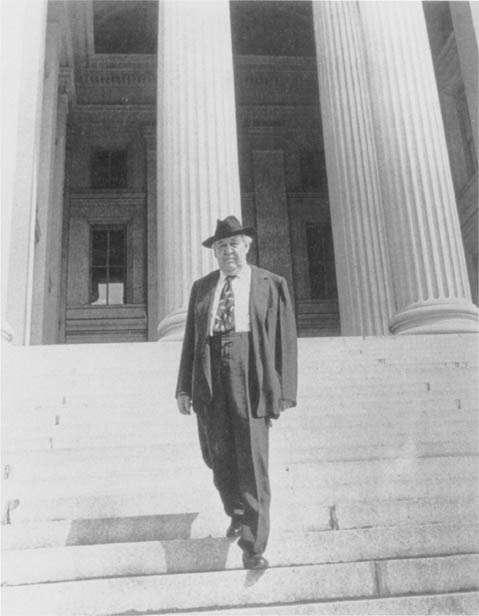
Hollywood goes to Washington, D.C., in Advise and Consent. Courtesy of the Academy of Motion Picture Arts and Sciences.

Cities, Parameters, the
Language of Politics
Washington, D.C., and Hollywood, California, are company towns in which the show is business and the business is show. Each seems to have sprouted up via a critical mass of power and performers. Both got their start, interestingly enough, as quiet backwater burgs.
Hardly a shining city on a hill, our nations capital was built on reclaimed swampland. Part-time politicos rumbled down its muddy cow paths from all across this fruited plain. A cadre of Jewish immigrants established the film capital, ironically, on the same site as a failed Christian utopia founded by Horace Henderson Wilcox. Corn-fed Midwestern starlets-in-waiting tooled down its dusty roads to flicker factories where the American Dream was churned out reel after reel.
As Hollywoods power grew, so did its political involvement. The too-close-for-comfort ties between Hollywood and Washington, D.C., are probably rooted in the kindred-spirit ideological and financial relationship between Herbert Hoover and Louis B. Mayer. William J. Clinton (or George W. Bush, for that matter) has nothing on our thirty-first president. It was no coincidence that Mayer, the second M in MGM, was Hoovers first overnight White House guest.
Republicans in both cities were looking forward to smashing smartly through seas of endless prosperity. Then came the Great Depression and, with it, a change of command at the White House. The only prospering Republicans were toiling away in Tinseltown, serving up glitzy and glamorous escapism for two bits, while a determined Democrat held a bulldog grip on the Oval Office for the next dozen years.
Left-leaning Hollywood woke up to ideological politics in 1934, when Upton Sinclair ran for governor of California. As part of his EPIC (End Poverty in California) crusade, Sinclair announced his intent to tax the movie industry. That campaign promise propelled the moguls to mobilize. They hired the first political consultants, Clem Whitaker and wife Leona Baxter, to launch a nasty smear campaign against Sinclair. Conservative executives produced phony newsreels in support of the Republican incumbent, Frank Merriam, and collected $500,000 in voluntary contributions from studio employees. Repercussions from these acts reverberated for twenty-five years: Democratic Party rolls swelled, unionization efforts went into warp drive, and the portal to disgruntled liberal thinkers was supposedly breached by Communists targeting the glamour capital of the world.
Today, both industries employ people doing basically the same jobsthe title may differ but the job description is the same. Its all about image and spin.
Hollywood, even those without reserved parking spaces, really liked Ike. He appealed to the showmen because of the dramatics of the war itself, claimed Herbert Brownell, Dwight D. Eisenhowers key adviser. In addition, Eisenhower became the first presidential candidate to be animated by Disney. Madison Avenue maven Rosser Reeves produced a series of thirty-second seductions to sell the World War II hero during prime time. The general was said to have cheerlessly moaned, that an old soldier should come to this!
Next pageFont size:
Interval:
Bookmark:
Similar books «Reelpolitik II»
Look at similar books to Reelpolitik II. We have selected literature similar in name and meaning in the hope of providing readers with more options to find new, interesting, not yet read works.
Discussion, reviews of the book Reelpolitik II and just readers' own opinions. Leave your comments, write what you think about the work, its meaning or the main characters. Specify what exactly you liked and what you didn't like, and why you think so.

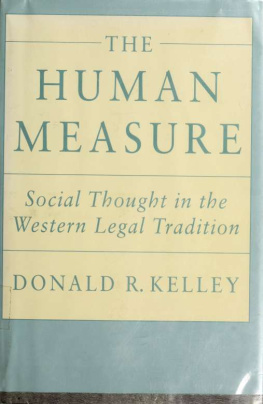



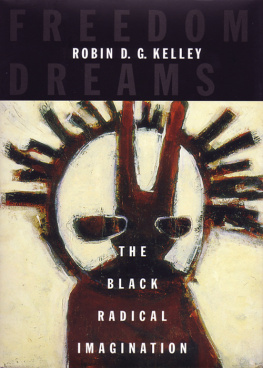






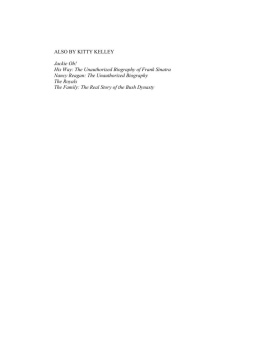

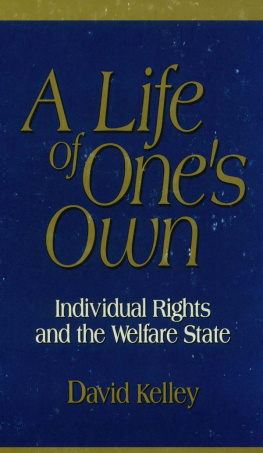
![W. Michael Kelley [W. Michael Kelley] - Calculus I](/uploads/posts/book/119087/thumbs/w-michael-kelley-w-michael-kelley-calculus-i.jpg)

